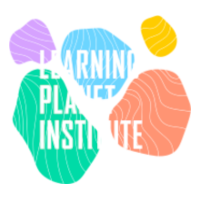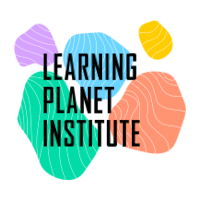Being a teacher now for 7 years in the Master’s program that saw her projects grow, Macarena-Paz Celume, alumni of the 2015 AIRE Master’s class, has remained faithful to the Learning Planet Institute community and values. She is also the research manager for one of the Institute’s inclusion programs. The relationship between the association and Macarena has been successful because of a shared ambition: to help transform education.
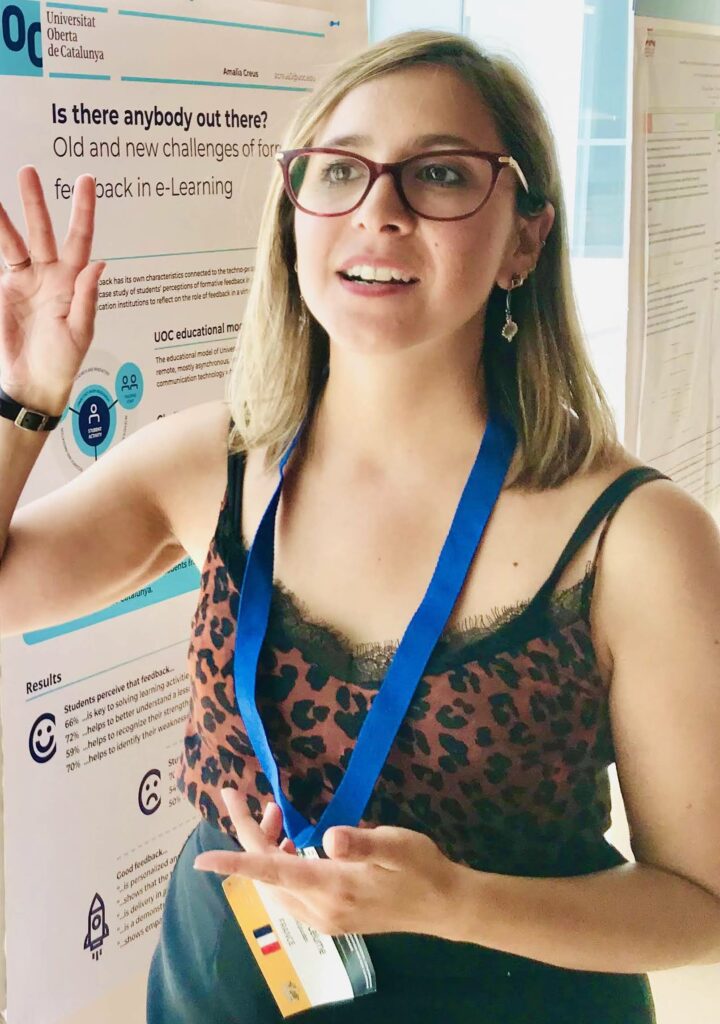
What guides me is to reduce the gaps in education. In order to do so, I work to change the conception of academic success, to integrate psycho-social skills into school careers and to value social, emotional, and creative skills. In fact, I am still developing the same project with which I applied to the Learning Planet Institute, so many years ago, full of hope. This is my life project.
INTERDISCIPLINARITY, A PART OF MACARENA-PAZ’S CELUME’S DNA
Macarena-Paz Celume‘s story with the Learning Planet Institute began when she decided to do her thesis in Paris. Initially unsettled by the french university bureaucracy that would like to constrain her thesis to one discipline, she didn’t give up: « My main obstacle was the interdisciplinarity of my research topic. »
Interdisciplinarity is an integral part of Macarena’s DNA: when she was younger, she declared that she wanted to be « an actress, a singer, a teacher, an astronomer and a psychologist. » She adds, « And I’m very lucky because that’s almost all I do today! I sing with a band, I do theater with a troupe,I’m a teacher and I have a PhD in psychology. »
It was this same aspiration that eventually led her logically to the Learning Planet Institute: « One day, I received a concrete answer telling me that my project was interesting but very interdisciplinary. So I stupidly googled ‘interdisciplinary research’ and came across the Learning Planet Institute. I couldn’t believe that it existed, and that it existed in France! “
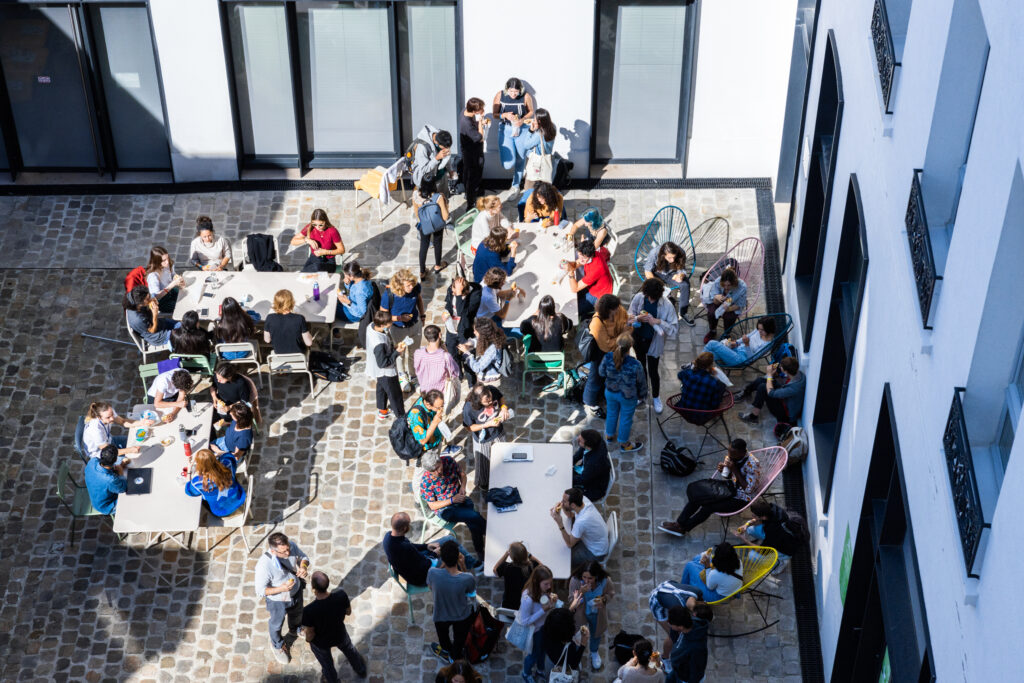
A MASTER’S PROGRAM THAT LIFTS ITS STUDENTS UP
As the registration for the FIRE doctoral school was already closed, Macarena turned to the AIRE master’s program, specialized in learning sciences, at Université Paris Cité, which is hosted by the Learning Planet Institute. She gave herself a year to refine her research project and to take advantage of the Institute’s ecosystem before completing her PhD in Psychology. The researcher then describes the campus as « a place where it is possible to discover other ways of working, to be open to change, to question one’s opinions, to broaden one’s horizons in order to look for better ways, in every possible field. »
« This master’s degree has opened up a whole bunch of perspectives for me. First of all, on what interdisciplinarity really was. » Indeed, the program is enriched by the connections between disciplines such as psychology, computer science, educational sciences, design, etc. The master’s program ensures not to limit itself to top-down teaching and emphasizes on peer learning, or learning by doing. « I was learning with people who came from all over the world (ed. note: the AIRE master’s program has 19 different nationalities), with completely different backgrounds, I was enriched by these encounters and projects. » The small size of the master’s classes (34 students) allows for constant follow-up and a personalization of academic careers.
What gathers the students is their desire to change the face of education, to innovate in teaching and to change the way people learn: « In this academic program, everyone works on different projects, but we all share the same ambition: to contribute to education.«
This entrepreneurial spirit and willingness to make things happen that I experienced there, I still use it today in my professional life and it is this same caring atmosphere that I try to transmit today to my Master’s students
The researcher then created workshops that combined active pedagogy and theater (the theater pedagogy) to allow children and teenagers to express their emotions while playing with their creativity. It is this same project that she continues to implement, 7 years later, with partners from the Académie de Paris and Marseille, colleagues at the INSPE Aix-en-Provence, and with her students at Aix-Marseille University.
THE LEARNING PLANET INSTITUTE’S ECOSYSTEM SUPPORTS THE PROJECTS OF ITS ALUMNI
When you join the Learning Planet Institute community, the relationship does not end once you have graduated. During their training, students are encouraged to get involved in clubs, events and the life of the Institute, which allows them to lay the groundwork for their professional projects: « What helped me afterwards is that I was well identified in the ecosystem. Not only as an alumni but also because I still teach courses at the master’s in addition to having been able to participate in many projects during my studies. »
When asked what experiences at Learning Planet Institute shaped Macarena’s career path, she answers without hesitation, « Starting to teach there! Starting to follow the different dissertations of the new generations that were coming to the Institute – seeing the evolution of the questioning. It was a great education for me in university teaching.«
At the Learning Planet Institute, I had a real pedagogical, innovative, and academic playground.
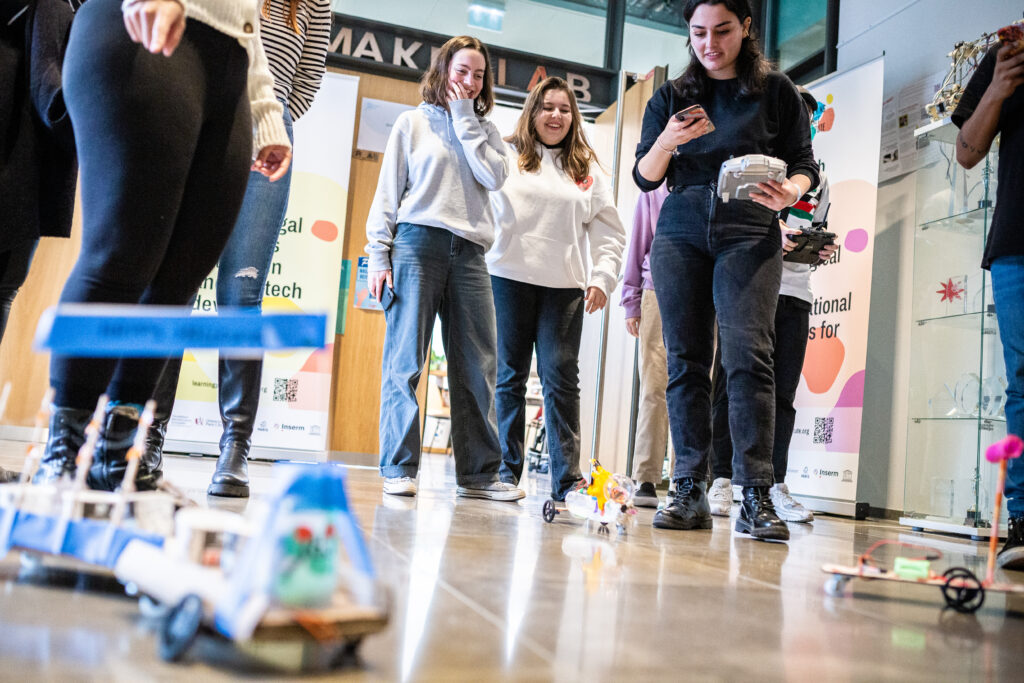
RELYING ON RESEARCH TO DEVELOP INCLUSION PROGRAMS
In addition to her doctoral research on developing creativity and social-cognitive and emotional skills, Macarena-Paz Celume joins the Learning Planet Institute’s Inclusion team in 2019 as a research and program evaluation manager.
« One of the strengths of the Learning Planet Institute is that you don’t have to have an ultra-defined pathway like we like in France. But if you come in on a project, have a mindset that fits, and your skills speak for you, you’re seriously considered. »
The Inclusion programs within the Institute aim to accompany people who are far from the labor market towards employment or entrepreneurship. They are distinguished by the contribution of the Institute’s pedagogical know-how and research methods, and by the consideration of sustainable development issues. These programs « have three principles: competence, integration, and education. I coordinate the different territories in which the program is implemented to have a common research protocol at the national level.«
USING THE RESEARCH-ACTION APPROACH TO ADAPT TO INDIVIDUAL CONSTRAINTS AND TERRITORIAL REALITIES
Why integrate research into an access to work program? Because one of the particularities of the Learning Planet Institute’s Inclusion programs is that they are part of a research-action approach. This allows the researchers to « have a picture of the project at a given moment » and to continuously adapt the programs according to the feedback from the field and the research in progress. This guarantees support is in line with the territories and individuals constraints and allows beneficiaries to become more involved.
« The research-action allowed us to see if there were any small flops in the project thanks to regular reviews and interviews. As a result, we have a precise overview of the project throughout its development, which allows us to respond quickly to any obstacles. The pedagogical team can then improve the workshops and adapt them to the needs of our participants.”
This method is bearing fruit: « We see results, significant changes between the people who enter and leave the program. We see an increase in well -being, which is very important since we focus a lot on that part of the psychological characteristics. »
Indeed, the Inclusion team quickly made the bet to not limit their input to operational skills but also to work on « emotional and social skills, such as empathy, tenacity, curiosity and creativity. They are concomitant with more operational skills, to develop a job or set up a project. They allow you to identify what you want to do and how you can get there. » This is where we recognize Macarena-Paz Celume’s touch. « I am convinced that the jobs of tomorrow will need creative, agile, critical people. »
I am convinced that the jobs of tomorrow will need creative, agile, critical people.
Macarena adds, « Research-action in an inclusion project allows us to highlight other issues that go beyond skills development: overindebtedness, administrative situation, mobility, childcare or even discrimination. These are essential variables to consider in the inclusion equation. »
The teams will soon communicate their results, « We will show where our project stands and present the repository of 21stᵉ century skills related to employment that we have created.«
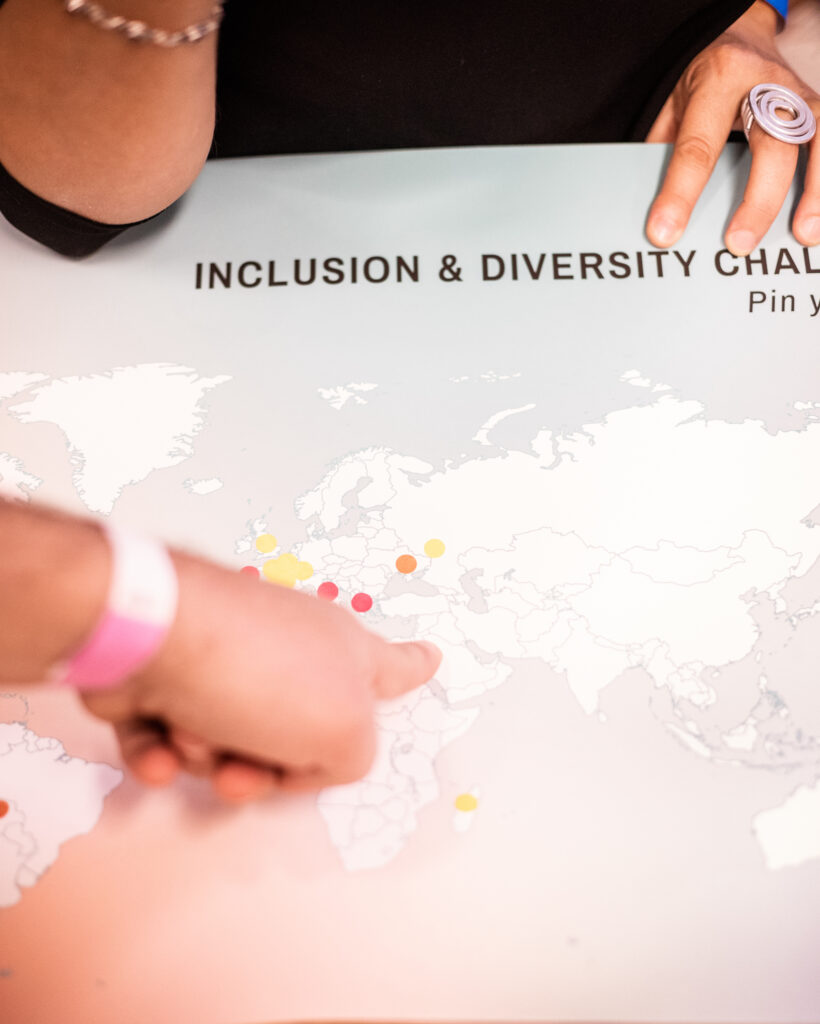
Such a journey requires an incredible will. It is on a daily basis that Macarena makes a stand for the emotional and social development of individuals, to change the way people look at education and to bring people to blossom so that they can, in turn, change things.
LEARN MORE
👉 Let’s meet other Learning Planet Institute’s alumni
👉 Learn more about the AIRE master (Interdisciplinary Approaches to Research and Teaching)
👉 Learn more about our Inclusion programs
A big thank you to Macarena-Paz Celume for taking the time to answer all our questions
